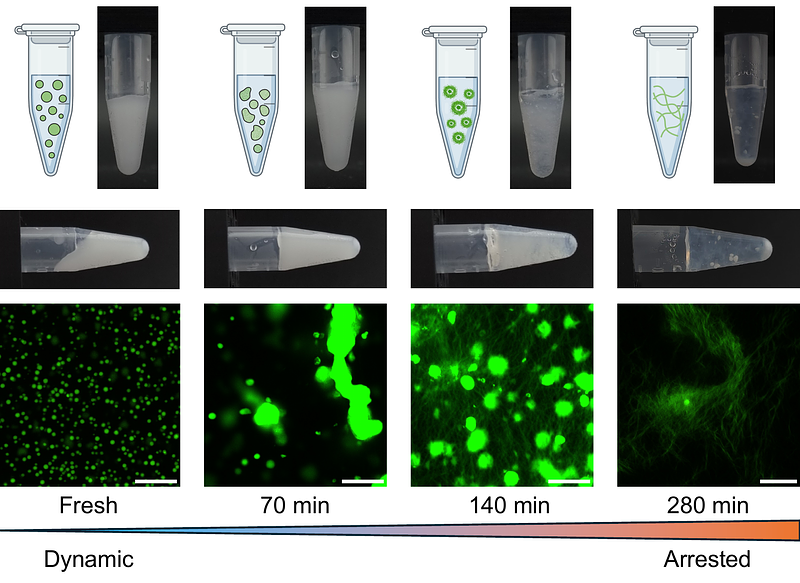Thermal cycling resets the irreversible liquid-to-solid transition of peptide condensates during aging

Thermal cycling resets the irreversible liquid-to-solid transition of peptide condensates during aging
Anwar, A. K.; Li, T.; Shen, Y.
AbstractThe ability of biomolecular condensates to reversibly dissolve and reform is crucial for maintaining cellular stability and functions. In metabolically active cells, stress granules can rapidly assemble and disassemble in response to environmental changes. However, as metabolic rates decline with aging, stress granules persist longer, disrupting mRNA translation and stress responses. Temperature, as a physical stimulus, plays a key role in controlling condensate formation, dissolution, and material properties. In this study, we explore how the reversibility of the liquid-to-solid transition of biomolecular condensates can be modulated by temperature change. Our findings reveal that aged condensates exhibit reduced responsiveness to external temperature stimuli. By using thermal cycling experiments to simulate repeated heat stress, we found that the time taken for irreversible fiber formation could be delayed up to 4.7-fold compared to condensates without thermal cycles. We also found the dissolution rate of condensates progressively slows as they age but remain more stable with thermal cycles. Importantly, our results indicate that continuous cycles of liquid-liquid phase separation and dissolution act as a reset mechanism, preserving the biomolecular condensates from further liquid-to-solid transition. These findings provide valuable insights into how aging impacts condensate behavior and highlight potential strategies to preserve cellular function through controlled phase transitions.